European collaboration to develop next-generation optical transceivers
The three-year research program aims to develop innovative programmable photonic components, all integrated on a Si photonic platform.
Aug 7th, 2014
Read more
The three-year research program aims to develop innovative programmable photonic components, all integrated on a Si photonic platform.
Aug 7th, 2014
Read more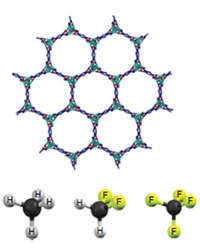 Replacing the large chillers that cool hospitals, museums, and other institutions with more energy-efficient systems means using new materials. Scientists are interested in replacing the silica gel used in today's chillers with novel molecular materials made of molecular meshes or metal organic frameworks.
Replacing the large chillers that cool hospitals, museums, and other institutions with more energy-efficient systems means using new materials. Scientists are interested in replacing the silica gel used in today's chillers with novel molecular materials made of molecular meshes or metal organic frameworks.
Aug 7th, 2014
Read more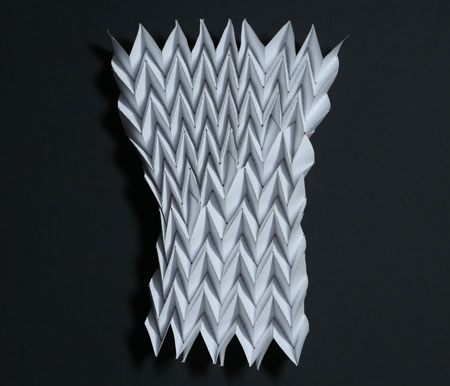 Researchers are using origami-based folding methods for 'tuning' the fundamental physical properties of any type of thin sheet, which may eventually lead to development of molecular-scale machines that could snap into place and perform mechanical tasks.
Researchers are using origami-based folding methods for 'tuning' the fundamental physical properties of any type of thin sheet, which may eventually lead to development of molecular-scale machines that could snap into place and perform mechanical tasks.
Aug 7th, 2014
Read moreResearchers designed a new non-enzyme nanosensor that has applications in the measurement of blood glucose.
Aug 7th, 2014
Read more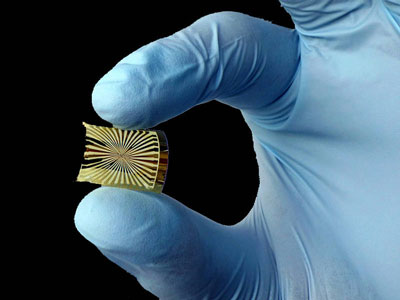 Researchers are using the special properties of graphene to produce key elements of an artificial retina.
Researchers are using the special properties of graphene to produce key elements of an artificial retina.
Aug 7th, 2014
Read more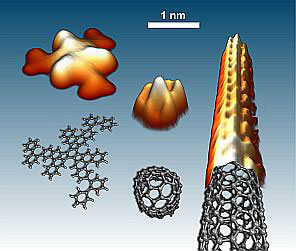 For the first time, researchers have succeeded in growing single-wall carbon nanotubes with a single predefined structure - and hence with identical electronic properties.
For the first time, researchers have succeeded in growing single-wall carbon nanotubes with a single predefined structure - and hence with identical electronic properties.
Aug 7th, 2014
Read more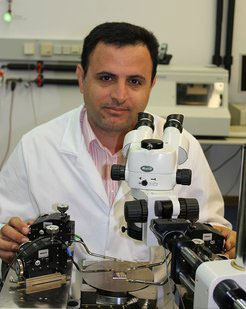 Kamal Asadi from the Max Planck Institute for Polymer Research in Mainz receives one of the highest German scientific awards from the Alexander von Humboldt Foundation. He studies materials and physics of future organic memory devices.
Kamal Asadi from the Max Planck Institute for Polymer Research in Mainz receives one of the highest German scientific awards from the Alexander von Humboldt Foundation. He studies materials and physics of future organic memory devices.
Aug 6th, 2014
Read more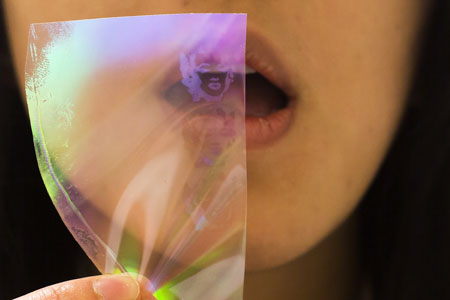 Researchers have developed a way to make labels that change when you breathe on them, revealing a hidden image. The labels use arrays of nanopillars.
Researchers have developed a way to make labels that change when you breathe on them, revealing a hidden image. The labels use arrays of nanopillars.
Aug 6th, 2014
Read more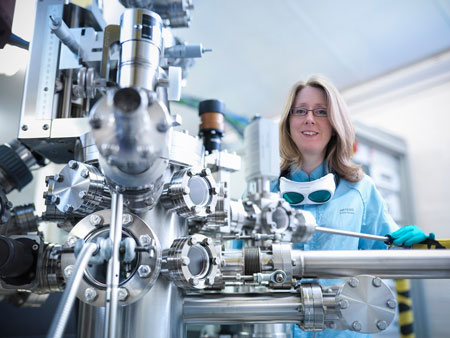 Scientists using lasers at a Science and Technology Facilities Council facility in the UK believe that they are a step closer to finding a replacement for silicon chips that are faster and use less energy than at present.
Scientists using lasers at a Science and Technology Facilities Council facility in the UK believe that they are a step closer to finding a replacement for silicon chips that are faster and use less energy than at present.
Aug 6th, 2014
Read moreA bioengineering team builds molecular motors to further the study of cell function. Component DNA is drawn from very different organisms.
Aug 6th, 2014
Read more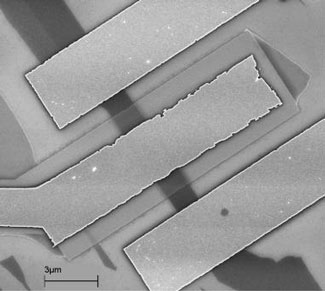 Engineers awarded $1.7 million grant to study new class of ultra-thin film materials that could improve the performance of personal electronics, optoelectronic devices and energy conversion systems.
Engineers awarded $1.7 million grant to study new class of ultra-thin film materials that could improve the performance of personal electronics, optoelectronic devices and energy conversion systems.
Aug 5th, 2014
Read more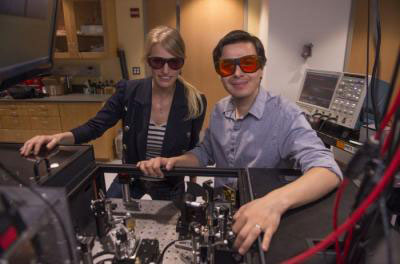 Scientists have long known that a molecule's behavior depends on its environment. Taking advantage of this phenomenon, a group of researchers at the University of Chicago developed a new technique to map microscopic environments using the vibrations of molecules.
Scientists have long known that a molecule's behavior depends on its environment. Taking advantage of this phenomenon, a group of researchers at the University of Chicago developed a new technique to map microscopic environments using the vibrations of molecules.
Aug 5th, 2014
Read more New discoveries about how butterflies feed could help engineers develop tiny probes that siphon liquid out of single cells for a wide range of medical tests and treatments.
New discoveries about how butterflies feed could help engineers develop tiny probes that siphon liquid out of single cells for a wide range of medical tests and treatments.
Aug 5th, 2014
Read more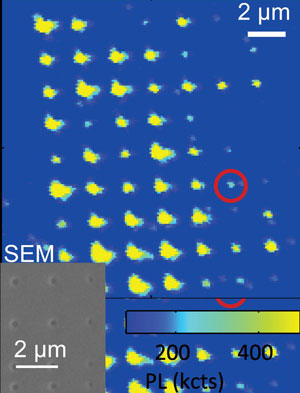 Planting imperfections called 'NV centers' at specific spots within a diamond lattice could advance quantum computing and atomic-scale measurement.
Planting imperfections called 'NV centers' at specific spots within a diamond lattice could advance quantum computing and atomic-scale measurement.
Aug 5th, 2014
Read more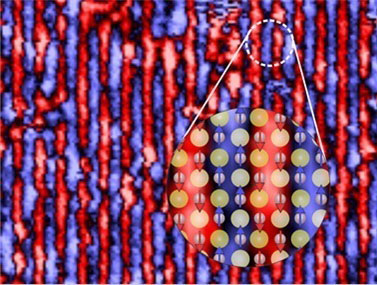 Atomic scale imaging of magnetic structures allows for new aspects of high-temperature superconductivity to be studied.
Atomic scale imaging of magnetic structures allows for new aspects of high-temperature superconductivity to be studied.
Aug 5th, 2014
Read more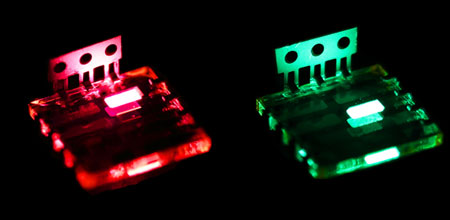 A hybrid form of perovskite - the same type of material which has recently been found to make highly efficient solar cells that could one day replace silicon - has been used to make low-cost, easily manufactured LEDs, potentially opening up a wide range of commercial applications in future, such as flexible colour displays.
A hybrid form of perovskite - the same type of material which has recently been found to make highly efficient solar cells that could one day replace silicon - has been used to make low-cost, easily manufactured LEDs, potentially opening up a wide range of commercial applications in future, such as flexible colour displays.
Aug 5th, 2014
Read more